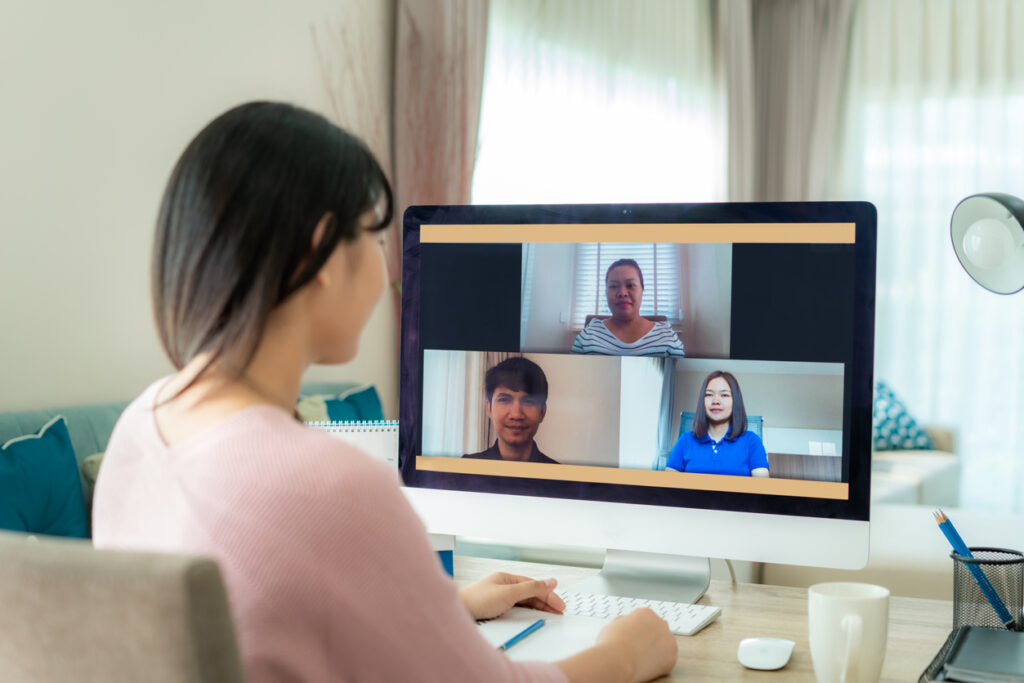When nothing about the working world is ‘normal’, it’s much harder to hold anyone to account. There are suddenly more mitigating circumstances for poor performance and disputes, as well as obvious barriers to achieving a resolution. Many of the familiar systems and processes can’t be followed or need to be amended.
At the same time, maintaining good relationships and a positive sense of community is more important than ever. What happens between people still working or furloughed under lockdown will create a legacy. That legacy will determine how successfully organisations deal with adapting to the post-Covid-19 environment, pull together and move forward.
It could be argued that if the grievance relates to in-office interactions, the working-from-home regime has put the issue on hold, but not necessarily. The situation may have been exacerbated by the limitations of relying on digital communications.
In terms of dealing with employee relations issues, it’s all about being reasonable, demonstrating a reasonable understanding and approach. Will we be able to look back on the lockdown period and be certain our decisions have been considered and justified, that nothing has been knee-jerk or left to fester because we want to wait until ‘normality’ returns?
According to ACAS guidelines, employers are under an obligation to proceed with following up on grievance cases without ‘unreasonable delay’.
The social distancing restrictions and level of disruption caused by Covid-19 could reasonably seen as a cause for delay, but the circumstances of each case needs to be considered.
Triaging the issues
What is the nature of the grievance, and what will be the risks of waiting until there are fewer restrictions? If it’s a grading issue, a matter of promotion or complaint about work allocation there would appear to be no justification for not dealing with the issue remotely.
For more personal, workplace relationship grievances there needs to be more thought about impact on staff now and for the future. Will waiting mean an accumulation of concerns, a worsening of effects and implications – on mental wellbeing, for example – for the employee/s involved?
It could be argued that if the grievance relates to in-office interactions, the working-from-home regime has put the issue on hold, but not necessarily. The situation may have been exacerbated by the limitations of relying on digital communications.
It’s important for HR and line managers to remember that mediation and informal forms of resolution are still viable under lockdown, carried out by professionals via a programme of confidential video conversations.
The new code of practice from Acas confirms disciplinary meetings can still go ahead as long as social distancing measures are followed and employees involved have the video call technology needed. If you’re going ahead with the disciplinary process, it might be necessary to look again at how HR policies are phrased. Is it stipulated that meetings have to be carried out face-to-face, or within a specific time frame? These might need to be amended to allow for a video disciplinary to go ahead without the risk of a future challenge and appeal.
It’s reasonable to triage, with lesser issues pushed back until there’s a return to ‘normal’. Are the problem behaviours going to be happening under lockdown, or can they still have an effect when working remotely?
Natural justice
Ensure you are following the principles of ‘natural justice’, even when you can’t follow your standard procedure (as established by 1978 Carnham vs Vale of Glamorgan Area Health Authority). An online disciplinary process, in principle, should be able to meet the natural justice criteria:
- That the employee understands the allegation against them (and evidence can be shared), and it can be judged whether the employee has the appropriate level of mental wellbeing to ‘receive’ the information.
- The employee has a reasonable opportunity to respond to the allegation (the process of invitations to hearings and meetings remains exactly the same).
- HR needs to be sure the employee has a space at home (supporting psychological safety) to allow the online meeting to happen.
- The employee has their response considered, in good faith, in an impartial hearing (and that may be a challenge, to find an independent person to lead a hearing). Chairing skills are key: making sure the conversation is clear and heard by all, that participants are respectful, not talking over each other, and making use of the mute function where necessary. Online is more tiring than face-to-face, so more adjournments might be needed. Phone meetings are less than ideal, but may be ‘reasonable’ if it’s the best that can be done.
- Live witnesses are not always needed (the Carham case says it’s ok not to), witness statements are sufficient and the employee can call witnesses at the hearing.
- An appeal processes still applies.
It’s critical that those involved with a video hearing are comfortable with using the technology, particularly for those leading the hearing. A technical rehearsal is essential. The online platform being used needs to be secure. It also needs to be clear ahead of the hearing whether the content is being recorded.
A more difficult issue is how to allow for representatives, such as union staff, to be ‘present’ at the hearing. Any furloughed colleagues are able to take part, as their participation in this kind of hearing doesn’t constitute ‘working’. While staff are at home it may also be considered reasonable for a spouse or other family member to act as a representative.
If a disciplinary results in a case for dismissal, the singular context needs to be taken into account: the potential for greater harm being caused. HR may see that a more reasonable response will be to furlough and delay dismissal.
Adapting your performance management techniques
There’s an argument that the remote working situation will heighten levels of performance management – line managers need to maintain contact, be pro-active, and not rely on their presence around the office. That means an opportunity to develop and improve methods, have more conversations and get more feedback – not for performance management to be put on hold.
[cm_form form_id=’cm_65a14c3f5da64′]
When it comes to employee relations overall, however, it’s important that managers are flexible and understanding when it comes to working under Covid-19 and its implications. Remote working and the ongoing crisis shouldn’t be an excuse for employees to under-perform. Equally, managers need to have a clear – and reasonable – grasp of how fair it is to weigh someone’s performance against the ‘old’ way of working. That judgment can only be made in terms of individual roles and circumstances.
Interested in this topic? Read The HR power shift: the new reality of performance management.







